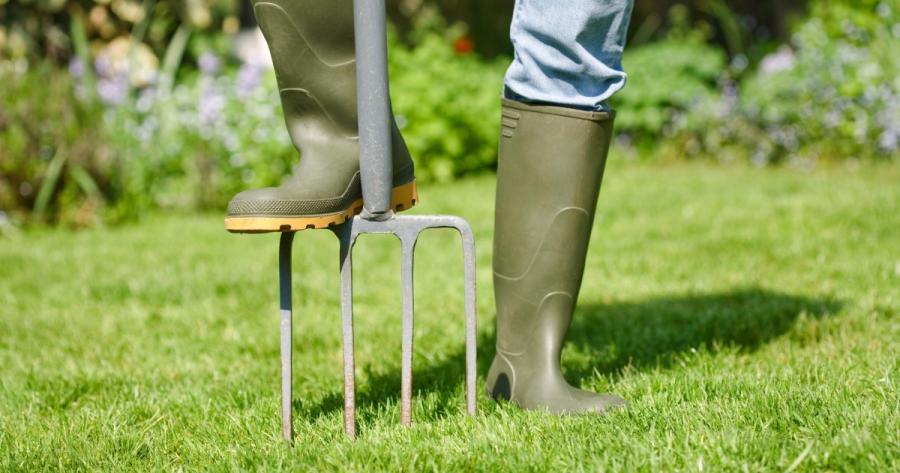Spring Lawn & Garden Tips

It's the time of year when the climate starts to warm up, and the cold weather begins to fade away. If you plan to take advantage of the temperature change by doing some yard work, keep these water-saving and environmentally-friendly tips in mind.
Use chemicals wisely
Applying fertilizer or pesticides in the spring can help build a strong, healthy foundation for your lawn or garden beds. But it's crucial to apply the right type at the right time.
Get a soil test or check your soil type to be sure you're using the right type of fertilizer for your lawn or garden.
Only use the amount specified by the instruction and avoid applying right before windy or rainy weather as newly-applied or excess pesticides and fertilizers will wash off into storm drains, wasting your money and polluting local waterways.
Water smartly
Lawns don't need to be watered in early spring when grass starts growing. For one, snowmelt will keep the soil well-hydrated for the first few weeks of spring. Second, watering too early encourages shallow root growth.
Delay watering to help the roots grow deeper into the soil and better withstand hot, dry summer weather.
Wait until the days become consistently hot and dry to start watering. For newly planted grass seed, generally, 10 minutes of watering in the morning and evening will provide enough water to keep the top few inches of soil moist.
If you have a sprinkler system, make sure it's set correctly so that it's watering at the right times.
Find ways to conserve water
After sitting with heavy snow all winter, aerating your lawn can help alleviate soil compaction and allow water, air, and nutrients to penetrate to your lawn's roots. This helps prevent runoff and keeps you from wasting water.
If you’re sprucing up your landscaping, consider using native plants. Since these plants are accustomed to local the climate, they require less care, such as watering or the need for pesticides or fertilizers.
Install a rain barrel to collect and store rainwater from spring storms that you can use for watering your lawn or garden throughout the year. This not only saves you money on your water bill but also helps reduce stormwater runoff.
Cover garden beds with a thin layer of mulch or compost to help retain moisture, reduce evaporation, and minimize runoff. Be careful not to spread it too thick, however, or it can work against you by preventing moisture from reaching the roots.
Use a broom instead of a hose when clearing debris from your driveway, deck, or patio.
Check for leaks
Check your outside spigots and hoses for leaks that may have occurred over the winter. These types of leaks can be costly if left unchecked but are often easy and inexpensive to repair.
If you have a sprinkler system, check that for leaks, too. In-ground irrigation systems are also susceptible to damage from winter frost.
Doing some spring cleaning indoors? Take the opportunity to inspect your faucets and toilets for leaks as well. Like outdoor leaks, these can often be fixed with little effort or cost but can have a big impact on reducing your water bill.
